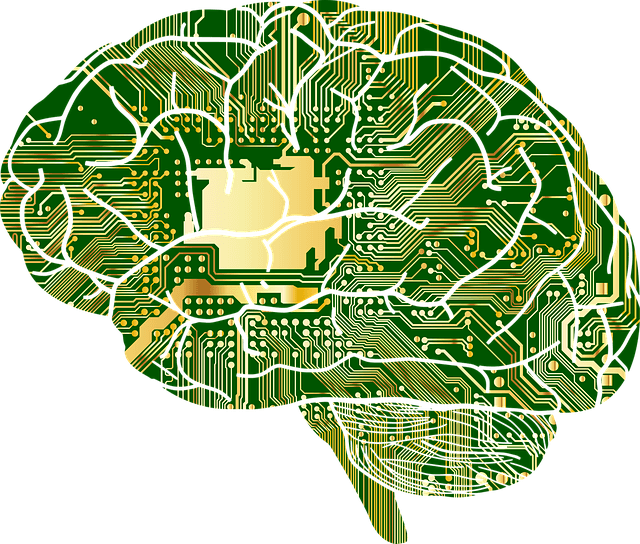Musical Intelligence: What It Is and How to Use It
Got rhythm? Here’s some of the strengths of a musical mind.

Do you ever feel jealous of people who have a natural talent for music? You know, those ones that can effortlessly carry a tune or learn to play new instruments with ease while you’re struggling to remember the words to “Twinkle Twinkle Little Star.”
Musical intelligence refers to the ability to excel when it comes to musical pursuits, including recognizing, playing, and learning music. It’s also one of the eight types of intelligence identified by psychologist Howard Gardner in his theory of multiple intelligences.
Musical intelligence isn’t just being able to play an instrument or having a naturally beautiful voice (although those are definite perks). It involves the ability to create, recognize, and appreciate musical patterns, rhythms, pitches, melodies, and harmonies.
People with this type of intelligence are adept at recognizing and producing musical patterns, rhythms, and lyrics. When it comes to learning new things, they may even find it easier if they connect the information throughout a song. According to Gardner, it’s as valid and important as being good at math, language, or understanding other people’s emotions.
Key Takeaways
- Musical intelligence involves understanding and creating patterns, rhythms, and melodies.
- It enhances cognitive abilities and emotional well-being by actively engaging with music.
- It’s a skill that comes naturally to some, but you an also develop it through practice, experience, and feedback.
- Applying musical intelligence can include music therapy, creative expression, and cognitive skill development.
Understanding Musical Intelligence
Musical intelligence is one of the eight types of intelligence described by Howard Gardner in his theory of multiple intelligences. Gardner suggests that intelligence isn’t one size fits all. Instead of conceptualizing it as a single, general ability, he instead suggested that it represents a whole spectrum of abilities. Each type represents a unique way of processing and utilizing information.
Some people are great at things like using words (verbal intelligence) or thinking mathematically (logical-mathematical intelligence), while others are wired to understand the world through music.
If you have strong musical intelligence, your brain is naturally tuned to recognize, create, and appreciate sound patterns, rhythms, and melodies. This ability doesn’t just mean you can play an instrument or carry a tune (though that’s definitely part of it). Having good musical intelligence also means that you are good at picking up on the emotional meaning behind music. You’re able to use it to understand stories and convey mood.
When you hear music, your brain processes the many different elements–like pitch, tempo, and rhythm–in a way that makes sense to you. This ability to interpret and relate to music helps set you apart from other people with other strengths.
In Gardner’s theory, musical intelligence is just as important as other forms of intelligence like linguistic, logical-mathematical, or interpersonal intelligence. It’s important to remember that people can possess many strengths. You might feel like you mostly possess musical intelligence, but you might also have varying amounts of other types of intelligence.
If you’ve ever wondered why you relate so strongly to music, it might be because you have a high level of musical intelligence. Knowing this can help you recognize your strengths and use your abilities in ways that maximize your learning and emotional well-being.
Benefits of Musical Intelligence
Having strong musical intelligence means you probably impress your friends at karaoke night, but that is definitely not the only perk. Musical intelligence offers a range of benefits. Evidence suggests that it can help enhance cognitive abilities, boost emotional well-being, hone your social skills, and provide an outlet for creativity.
Enhanced Memory
People with strong musical intelligence often have amazing memories. They are great a remembering lyrics and melodies. They also have a knack for noticing and remembering the smallest details about a song.
But this skill isn’t just limited to music! They can often apply it to other areas, like learning new language, remembering past events, or learning new information. This is particularly true if they can relate this type of information to music.
Engaging with music can boost cognitive development and brain function, helping you better understand intricate patterns and improve memory retention. This can lead to improved academic performance, as skills like problem-solving and creative expression are often enhanced through musical activities.
Improved Emotional Expression
Music also plays a big role in emotional well-being. Songs can be powerful! A song can bring a tear to your eye or give you the motivation boost you need to finish a tough workout. Musically intelligence people are often able to tap into their feelings and express them through music.
Listening to or creating music can provide stress relief, helping you relax and manage anxiety. It allows for emotional expression, which is essential for maintaining mental health.
Better Focus and Discipline
Learning an instrument or perfecting a musical skill requires focus and discipline. Musically intelligent folks are pros at setting goals, practicing regularly, and pushing through challenges. These habits often spill over into other areas of life, making them more organized and determined in general.
Stronger Social Connections
Music is a universal language that brings people together. If music is your thing, you probably enjoy activities centered around it, such as playing music with friends, singing in your school choir, and sharing playlists with your buddies. It’s a great way to meet new people and strengthen your social bonds.
Participating in musical activities, like playing in a band or singing in a choir, can improve your communication skills and help you build relationships. These interactions foster a sense of community and belonging.
Heightened Creativity
People with musical intelligence often excel at thinking outside the box. Music often requires improvisation, which involves finding new ways of seeing things and coming up with new ideas. This creativity can translate into innovative problem-solving skills in all kinds of situations.
How to Recognize Musical Intelligence in Yourself and Others
Ever catch yourself tapping out a rhythm on the table without even realizing it? Or maybe you’re the go-to person in your friend group for curating the perfect playlist. If any of this sounds familiar, you might have a knack for musical intelligence. But how do you know for sure? Here are some questions to help you gauge your own abilities:
- Do you often find yourself humming or singing to yourself?
- Can you easily remember and replicate tunes after hearing them just once or twice?
- Do you enjoy listening to a wide range of music and can you pick up on subtle differences between genres, artists, or songs?
- Do you find it easier to learn something new when it’s set to music?
- Are you drawn to playing instruments, even if you’ve never had formal training?
- Do you often notice and get affected by background music in movies, stores, or public spaces?
- Can you feel or even visualize patterns and rhythms in music?
If you answered “yes” to most of these questions, then you probably do have strong musical intelligence! Whether you’re already a musician or just someone who deeply appreciates music, this ability can enrich your life in ways you might not even realize.
Can You Enhance Your Musical Intelligence?
If you’re interested in enhancing your musical intelligence, there are steps you can take to strengthen it. Experience and practice are the best places to start.
Start with effective practice techniques, such as breaking down songs into smaller sections and repeating them until they’re mastered. This approach helps with skill development by focusing on specific areas that need improvement.
You should also try to utilize various learning strategies to expand your musical knowledge. For instance, try listening to different genres, learning new instruments, or taking music theory classes. Such strategies can give you a greater appreciation of music, which in turn enhances your overall musical abilities.
Performance improvement comes with regular practice and seeking feedback from others. Record your performances and listen critically to identify areas for growth. Joining a band or an ensemble can provide valuable experience and help you learn from fellow musicians.
How to Apply Musical Intelligence in Your Own Life
So, how can you put your musical intelligence to work in your own life? Research has shown that music can have a broad range of psychological benefits, from soothing feelings of anxiety to boosting motivation. Some practical uses for musical intelligence include:
- Music therapy: An application that can help you to utilize music to enhance your well-being
- Creative expression: Music can be a powerful tool for expressing yourself, whether you are writing, playing, or sharing it
- Education: Learning more about music can be a great way to understand it more
- Playing music: Learning to play an instrument can be a great way to enhance your abilities–plus, it’s fun!
Important Points to Remember
By understanding and applying musical intelligence, you can enhance your cognitive abilities and emotional well-being. Recognize your musical talents, practice regularly, and seek feedback to improve.
Not only does this enrich your personal growth, but it also helps you connect with others and develop analytical skills. So take a chance on musical experiences. By learning more about music, you’ll be better able to embrace its influence in your life.
Sources:
Al-Qatawneh, S. S., Alsalhi, N. R., Eltahir, M. E., & Siddig, O. A. (2021). The representation of multiple intelligences in an intermediate Arabic-language textbook, and teachers’ awareness of them in Jordanian schools. Heliyon, 7(5), e07004. https://doi.org/10.1016/j.heliyon.2021.e07004
Shearer B. (2018). Multiple intelligences in teaching and education: Lessons learned from neuroscience. Journal of Intelligence, 6(3), 38. https://doi.org/10.3390/jintelligence6030038





